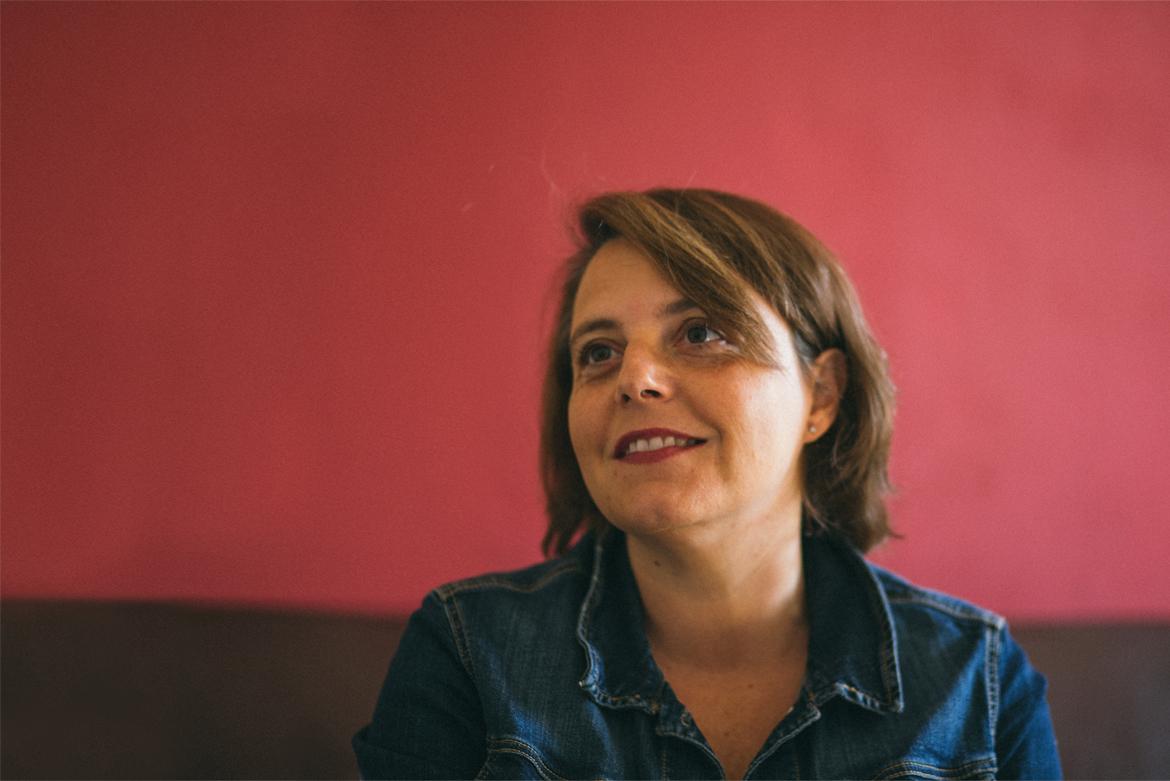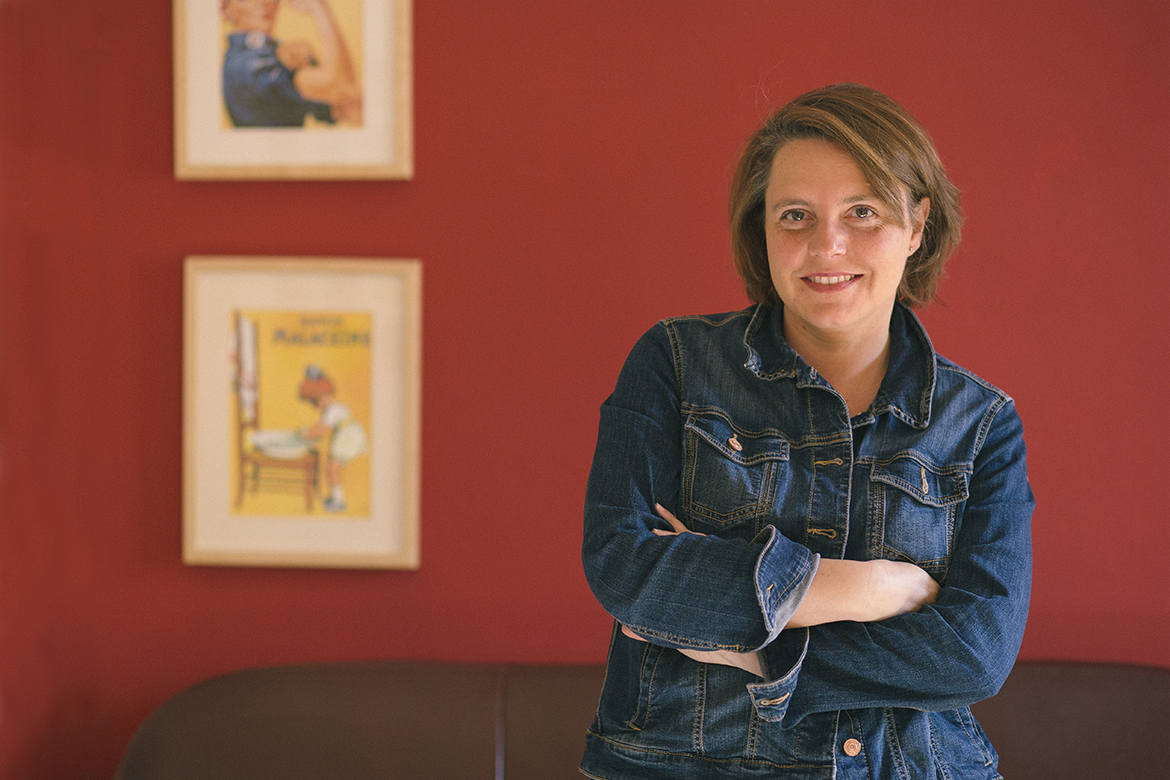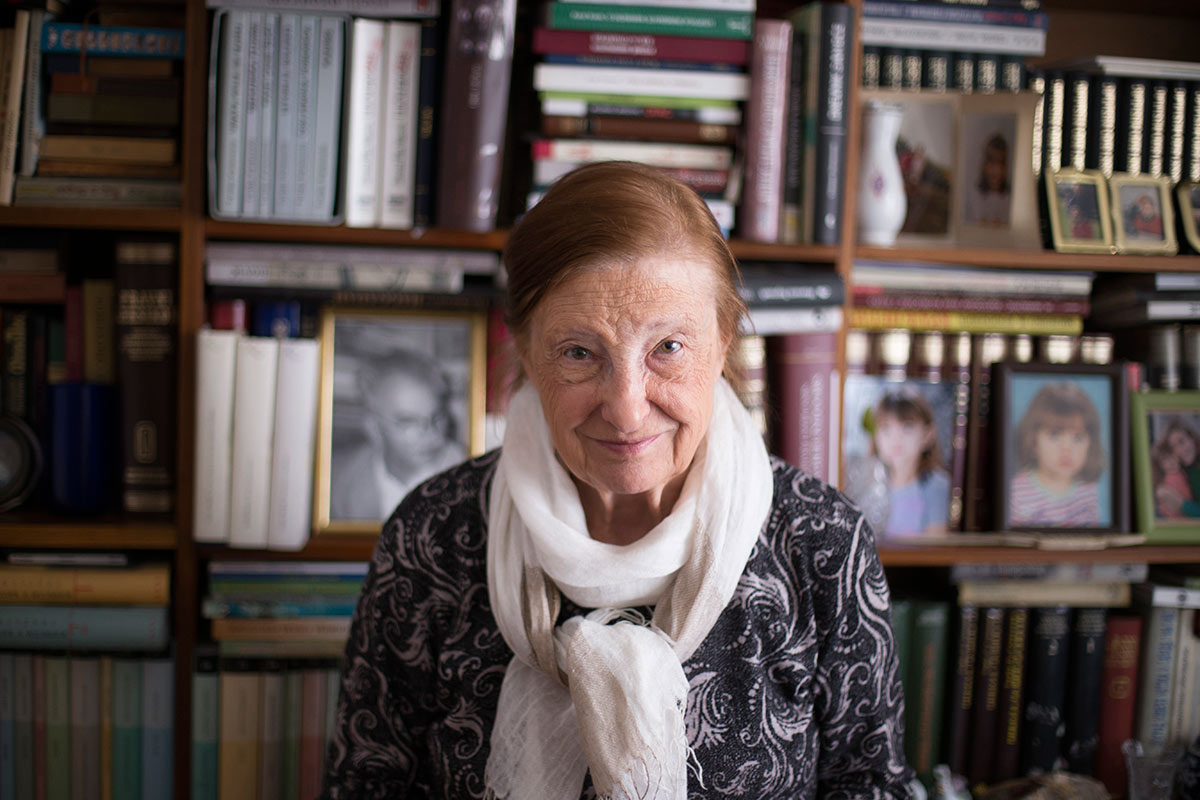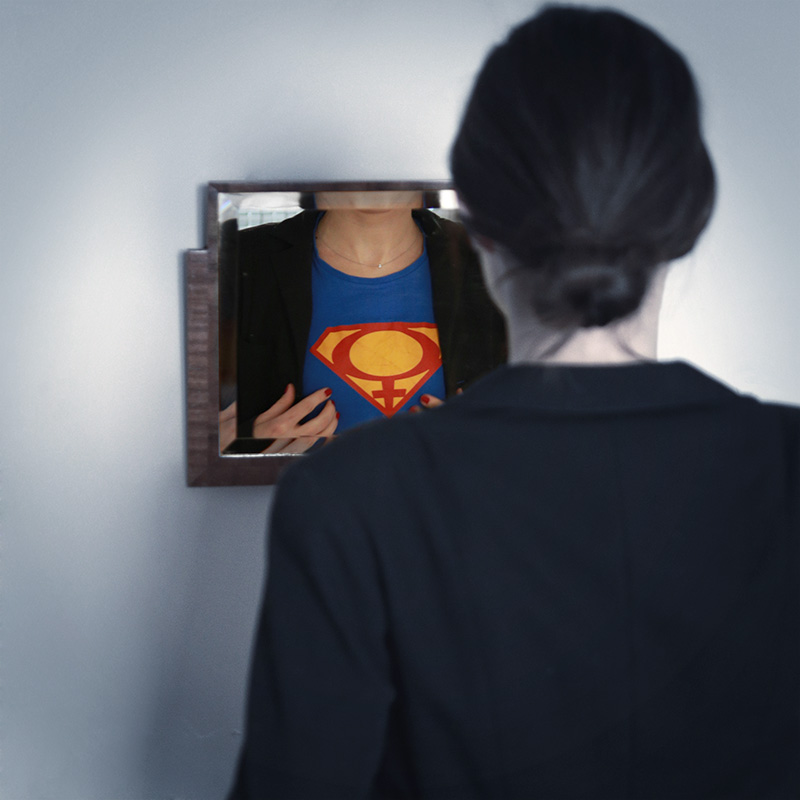
MILICA’s team went to Switzerland to meet with a woman who, through complex and long-term democratic procedures, changed the rigid Swiss immigration policy system. Meet a fighter from the Swiss left, a delegate in the Swiss Federal Parliament, secondos (second-generation immigrant) from the warm base of the Italy’s heel, charming and brave, Ada Mara.
Amidst the global emigration crisis, the success of the initiative for the mitigation of the requirements for obtaining Swiss citizenship for the third generation immigrants, at the elections in the beginning of 2017, became major news in all of the leading media everywhere. Extremely strict requirements for acquiring citizenship has led to a situation where a quarter of the Swiss population today is considered foreign. The initiative, finally adopted after eight years of administrative procedures, facilitates obtaining Swiss citizenship for children of the second generation immigrants.
We talked with Ada Mara on the ways she, as immigrants’ wife and daughter, continues to fight for a better world in this rich, developed, and democratic country, one of the most desirable environments for fulfilling dreams of a happy life.

What was the goal for starting this initiative and how satisfied are you with the result of 60.4% YES for simplifying citizenship procedures for the third generation immigrants?
In Switzerland today, as everywhere in Europe and the world, there is a clear tendency towards isolationism and presenting heritage as an identity issue, and it’s all returning to public dialogue. What we intended to do with this initiative (and at the end achieved it) is to respond to this tendency with a clear message: enough of that! I hope that now we can relax a bit about those issues. On the other hand, starting the initiative for simplifying citizenship procedures for third generation immigrants, instead of acquiring automatic citizenship for the second generation, is for me, as a leftist, rather disappointing and shameful. However, at this point, this was the only possible political compromise., and also symbolic and important achievement, especially in the atmosphere of political discussions related to minarets, isolations, Islam, and everything surrounding those subjects.
What was most difficult in this fight?
The most difficult thing for me was being alone. From the very beginning, some memebers of my own party didn’t trust the initiative. Also, this was a rather long process: spending nine years in Parliament, with the need to always be present at the right moment, lobbying, after that the campaign itself, underfunded because we led another one simultaneously which was related to economic reform (reform on taxing companies) – and all the attention and funds were directed towards it. To be clear, I completely understand and support the decision to give priority to economic questions as opposed to those of identity. Apart from loneliness and perseverance in this fight it was difficult to keep a distance and impartiality in relation to questions which directly concern me, considering that my parents are immigrants and I am a naturalized citizen. It was frequently necessary to put in a lot of effort not to react when I’d hear certain things.
To what extent is Switzerland concerned with current migration issues?
Switzerland is a migrational country. It cannot be denied that 25% of the population are immigrants. We can play the game of the authentic Swiss, refer to William Tell, year 1291 and the oath of the Swiss Confederation at the Rutli Meadow. We can try and tell ourselves these stories, but our current reality is that 25% of the population are immigrants. There is more than one reason for this. The first is economic – when people wish to leave their country of origin and go find work. There is work in Switzerland, and there are also people who keep coming. Employment market regulates migrations. Our experience with migrations is long, as are the attempts to block it.
The first wave of migrations was in the 1960s with the Italians. Then came the Spanish, Portuguese, then citizens of former Yugoslavia, who came in the 1980s – and, actually, that had all gone smoothly, just like with the Italians and the Portoguese before them – they were a part of the same circle. And then the anti-Muslim movement happened. Muslims started coming from Bosnia and Kosovo. Even though the opposite view is maintained, they were excluded from the priority circle, which made it more difficult for them to find work in Switzerland, where laws are rather strict – especially those concerning immigrants. Today, with the free movement policy, residency is facilitated for the citizens of Switzerland, European Union, and the rest of the world. In the past, this referred to Switzerland and the European Union, even Yugoslavia. But due to the civil war, former Yugoslav republics were excluded from the priority zone and now need to fulfill the same requirements like the rest of the world. It has since been much more complicated for the Balkan people to emigrate to Switzerland. They continued to come during the wars, but Switzerland has since shown clear intent to make the access for people from the Balkans more difficult. The causes are clear to me: the question of religion and fear of Islam. I see no other explanation, since they are the same as everyone else, they work, they don’t cause problems…
Everyone has this fear from the Arabs populating Europe…
Arabs and Muslims are frequently mentioned in today’s European context of migrations. In Switzerland, there are very few Arab Muslims. Total number of Muslims here is 450 000, 80% of which are from the Balkans, and only 20% are Turks and Arabs. Nevertheless, it has been rather traumatic during the campaign. The side opposing the initiative frequently mentioned that there are good and bad migrants: “Italians and Spanish were good migrants, but not those arriving today – Syrians, Ethiopians, Blacks! They are supposed to become Swiss citizens in the future?!” Obviously, there remain many more issues to be worked on. Prejudice is strong even among some of those who voted for the initiative.
I am acctualy in the process of writting a book about swiss identity.
What about the well-known syndrom of the migrants who come and close the door behind them?
Yes, precisely. There are some migrants, or those who are immigrant-descended, who are very racist and xenophobic. Their logic is typical: “If I had suffered, let others suffer, too.” But, you know, the difference between Switzerland and the rest of the world lies in the fact that we can vote on those issues. And then it is always shocking when a majority of people votes on things like banning the building of minarets. If other countries would let people vote on such sensitive issues, I suppose that the majority would also vote in that direction. It’s just all more transparent here.
Nevertheless, I’d like to reiterate that we are a country whose total population is 25% immigrant. We’re not a country which fends off migrants.

To what extent has your personal story of an Italian immigrant’s daughter influenced your career?
I think that me being in politics is reliant on the fact that I am a daughter of Italian migrants and workers. The place where I grew up, here in Switzerland, was nestled in inequalities. And I say this without any spite, hatred, agressiveness – I was merely able to see that in our village there were poor and rich people – that there was societal diversity. We went for afternoon snacks to people who had villas and pools – so I noticed that we don’t all live the same. I felt this already at the age of twelve, and also felt the need to do something about it – to make our lives not defined by socio-economic origin.
After that, in Parliament, I have chosen to take part in Commission on Migrations, due to that feeling of historic responsibility. I managed to stay on for four years. It was difficult constantly dealing with all those sterile debates – minarets, burkas, etc. The reason I am a socialist is because I want to improve concrete, everyday human reality. The law which was voted for and subsequently brought into effect due to some four minarets in Switzerland, in daily actual life didn’t really change anything. Nobody cares. Now I am a member of the Commision for Economic Issues. I feel that my struggle as a socialist in this domain makes a lot more sense. My propensity for issues related to identity remains and will remain with me for the rest of my life.
The Swiss system has a rigid structure. How does it influence the identity of the Swiss and the migrants? Is it possible, or even necessary, to save a trace of one’s heritage, one’s own authenticity?
For me, integration does not mean assimilation. What does it mean to be Swiss? My identity is related to Lausanne, not Switzerland. Switzerland is a confederacy – there are three official languages, twenty-six school systems, and it’s a multi-confessional state. Yes, we are in the system, and it is true that when you are a part of the system you cease to be an individual. In Switzerland this is particularly pronounced: protectionism around everything – information, business, etc. But at the same time, I believe there are aspects of one’s own culture and ancestry that you continue to carry with you: language, food, music… Plurality of identity will continue to exist always and for everyone, even for the Swiss of the younger generation – they will also have their own questions of identity – are they urban members of community or do they come from a rural environment, for example. If you come from a rural area and you wish to become an engineer in a city, it gets very complicated – so I think that the plurality of identity is inherent to people.
Present drama lies in the fact that certain discourse keeps trying to persuade us that there is no plurality of identity or that it only exists for a certain category of people, foreigners, for example. However, in today’s globalized world, Easy Jet can take you anywhere you want, while your parents might have never flown in their lives. Phomena like this set us apart from previous generations.
How do you respond then to the new trend of constructing walls on the borders of European countries, Mexico…?
It is a disgrace! Contemporary Western world should be ashamed. We don’t empathise with anything or anyone any more. People are dehumanized. What does “foreigner” really mean? There are no foreigners, there are only people, there are millions of ways to be a foreigner: you can come from underground, you can be a third generation, an asylum seeker, a worker…
I believe primarily in the economic reality above all. I feel that economy takes clear precedence over religion: all these so-called religious wars are also economic wars. There is this individualist consumerist extremism related to all this.
But I would also like to say something that might be shocking, and has to do with the 1968, the year of the revolutions. Of course, I support feminists, the pill and all that. But that year has also produced a deviation – consumerism. There was a financial prosperity which led us to this consumerist, individualistic heritage. Walls represent the result of this individualization, and the dehumanization we see today in all segments of society. It is for this reason that I do not believe politics is sufficient.

Political programs don’t allow us to find ourselves as human beings. For a cultural and coherent world we have to open our eyes and our hearts. We have economic, social subsidies, whatever we want, but this will not touch our hearts. How can we achieve this? One thing is certain – politics will not get us there.
What then can a leftist do to make the world a better place in such a firmly structured capitalist country? What is your ‘battle arena’?
I am not sure that Switzerland is the most capitalist state in the world. Let’s just think about, say, our government subsidies to our farmers. We, in Switzerland, have the greatest number of subsidies in Europe.
Yet, as for your actual question, the Socialist Party is, in my opinion, the most leftist in Europe, because we defend the public sector and that is our leitmotif. This means that regardless of whether you live in a remote part of a mountain or in downtown Zurich, you will receive your mail and the price of a stamp in francs will be the same. This is a tiny example of a guaranteed democratic and egalitarian practice. Still, I think the left in Switzerland has the same problem as the left in general – is it necessary to abide to capitalism or can we offer an alternative?
Within the party, we differ: some of us are liberals, some socialists, others support capitalism and so on. Personally, I lean towards the liberal position. Another parting line of the left on the global level is the clash between globalization and sovereignty. Do we support free trade agreements or, first and foremost help our farmers? This is a huge difficulty for the left: it is clear that globalization does not always bring good results, whereas sovereignty often leads to nationalism and seclusion. What is our answer? We do not have one.
Although I did not receive much support, personally I was for a universal basic income where all citizens receive a certain sum of money at the end of every month. Say, 1000 francs, it does not really matter how much. This sum does not stop you from working and earning more money if you can, but there are those who will not work, but will want to paint, or develop some other aspects of their personalities which are usually neglected in a society as it is currently organized. Who receives salary today? Mere employment is paid because the job is what provides for children, fulfills the general objective needs, but in the aforementioned example you are not paid, it is not considered a job. Thus, the idea behind this unconditional basic income is, for example, to develop your creativity – you will be less afraid if you want to start a new business because you know that you will still have the money for food, and that you are not forced to make bad decisions out of emergency. The point is to find a system which will develop our traits and skills differently than the systems we know today.
Switzerland’s stability and its relationship towards Europe.
I believe that the attention Switzerland pays to minorities is of an utmost value. We have an extremely complex, but still a well-balanced political system. Due to federalism, there are left-wing cities which can make up for right-wing national politics. The left is present everywhere in the state because there are different levels: national, cantonal and municipal. I think that stability is provided by an extremely slow procedural process in Switzerland. It took nine years for my initiative to be approved. There is still an extensive period of consultation: in the cantons, communes, associations, we consult almost everyone. Before the things finally start to happen, all the opinions have already been taken into consideration. People may or may not like the decision, but it is made only after all parties have been consulted and everyone introduced to the proposal. I believe that this is a problem in Europe – I am not saying that this is the main European problem – but, from the institutional point of view, the people, the states, are never consulted. There are only committees and ministers that make decisions. Therefore, I think we need more Europe but with better democracy, better system of representation, which, on the other hand, means more responsibility on the part of the people. In Switzerland, the people represent a huge counterbalance, thanks to the right to referendum and initiative. Thus, if the politicians start messing about, the people can correct that and create balance. In Europe, things should work similarly; if a decision is believed to be bad, there should be a way to do something about it. Yes, Europe has the right to an initiative, but for it to be launched, 3 million signatures are required.
What are your views on the European Union today?
The problem is that today we are in a liberal and economic Europe, and not in a social Europe that contributes to everyone. This is what complicates the talks with people who want to leave Europe… But I believe that the idea of Europe is a good idea. I am sure that we will all pay the price for wanting to return to our national states, currencies and competing goods. The old problem still remains – how to redistribute wealth. In other words, the liberal and economic elite have led to the growth of certain groups, such as shareholders and companies, whereas the others have been left out. So Greece happened and the entire financial crisis, but, in fact, that was the war of the shareholders. The banks went bankrupt and the people were the ones who paid for fiscal decisions of the financial sharks. As long as the system remains the same, Europe won’t be liked. It won’t be possible, because people do not see the added value it provides. There is added value for some financiers, that’s for sure. This is precisely why we have to change the idea of Europe and its goal. It may sound somewhat silly, but if you are outside of Europe, you cannot decide the future of Europe or European Union.
What is your view on Catalan referendum?
I am all for self-determination when people are mistreated as minority: Kurds, Palestinians, etc. However in this case I find it shocking. They want to make a secession based on economic reasons. Their rights as a minority have not been trampled. Their language is taught in schools. I fight in Switzerland to support the idea that we can all live toghether in spite of all our differences, so I find that what Catalans are asking for is shocking. There’s a manipulation of cultural/identity issues for economic reasons.
In your life, is there a public domain and a private domain not related to politics?
For me, this is all tightly connected. I don’t lead a double – political and nonpolitical – life. I live a life of commitment, grit, and that is what it’s always been like. I was completely focused on the subject of identity. Now, I am committed to debates on the alternative to capitalism, as well as to feminism. When you come from a southern family, you have to fight; you may not be aware that it is feminism, but you clearly see, when your brothers sit and watch TV while you cook that there is a problem. I live in the man’s world… I am very passionate when it comes to secularism and religion. It’s all very complicated – the position of religion in a layman`s world and the position of women in it. Then, head scarfs and burkas will definitely become the subject of an initiative. What position will I take? As a feminist, I say to myself: ‘The first ones to suffer the consequences of this are women’ and then, on even deeper level: at present there are approximately ten burkas in Switzerland and we discuss them. Therefore, there are a lot of topics I am preoccupied with.
What is harder in Switzerland: to be a migrant or a woman?
This is an excellent question. I think that Switzerland is one of the last states to have given women the right to vote. It was in 1971 that women finally obtained that right, which shows that Switzerland is patriarchal, even macho. In the eighties women had to ask their husbands for permission to open a bank account. Public policies that deal with family matters are catastrophic. Women find it almost impossible to balance between their family life and their professional life. I believe that being a woman in Switzerland is still very difficult. If you are not only a woman but a migrant as well, it depends: if you are rich, it`s ok, but if you`re not, then it`s hard. What is more, the new law on citizenship, which will be passed in 2018, will reform the conditions for acquiring a citizenship. In short, you will have to be educated and rich. There’s an idea about what a Swiss should be like! Just great!
Can quotas and legal regulations strengthen the emancipation of women?
I am all for quotas. I believe that without quotas, what we stand for can never be achieved. For now, there are no quotas in Switzerland, and it is precisely quotas that introduce women to politics. This is what we, the leftists, do – we create common lists with the same number of both men and women. This forces the president of the party to make an effort to engage both male and female candidates, and also makes women get their act together and get down to work. As a result, we, the left, have managed to draw much more women than the right-wing parties, and the number used to be more or less the same before.
But then there are complaints that it does not really matter whether you are a man or a woman; what matters is who is more competent for a certain position…
I don’t think women are less competent than men. If we look at the situation around the world, men do not display any superior skills. I believe that it is necessary to empower women through the policies of balancing family life and professional life. I’ll give you a simple example: in politics, meetings are usually in the afternoon, and women are often the ones who take care of children, not men. Moreover, it is necessary to point out that in Switzerland, for equal work with equal qualifications, women earn 20% less than men in the private sector, and 10% less in administration. You know the story: ‘women are used as an alibi,’ I mean, I don`t care! I was chosen thanks to quotas and I don’t see myself as an alibi, I believe I’m competent enough.

How do you see the position of women in patriarchal southern Italy where the idea of a ‘big mama’ is still dominant, and here in Switzerland, an allegedly developed, prosperous country?
This is a good question, I’m thinking… I think the position is in fact the same, that is, a woman is considered inferior in the collective imagination, except that there is a clan in Italy. In Switzerland there is no idea of a family clan, a crime of honor. I think this is especially present in some countries where the clan is important, where a man is seen as a protector, a defender of honor and everything else that goes with it. In Switzerland, there is no such thing. There is, maybe, a slight dramatization, machismo, the inferior role of a woman, all that. In the end, Italian women gained the right to vote before Swiss women did, Serbian women also, I suppose. So, in Switzerland this is all less obvious on the surface because there is no idea of the clan. But, essentially, there is no difference.
Is the myth of a ‘big Italian mama’ as an ideal woman just a myth or does matriarchy really exist – big mama is consulted for everything?
Well, this depends on the field we’re discussing. If it is about the relations within a family, yes, you are right, matriarchy… But you know very well that this phenomenon can be tied more to the principle of motherhood than to a strong woman. Even if a woman is strong, then we have the system which guarantees that men are always those who push forward. If a decision has to be made, men should be pushed, not women. So the system is made for men. It functions to men’s advantage. I believe that, if we are strong, there can be matriarchy, but the system still works for men. The same situation exists in Switzerland.
And what about women’s solidarity, here and there? I am under the impression that in the southern catholic societies women and families function better regarding taking responsibility and providing support to an individual, no matter whether it is a man or a woman.
In Switzerland, there is an extremely powerful social system the left has managed to establish. The trade unions did not create it. It is the result of fighting and human solidarity. On the other hand, mutual solidarity happens when there is a need for it. In Switzerland, this is not so much the case, because Switzerland is a social state. If you are unemployed, have money, protection… an unwanted consequence occurs (we already talked about the 1968 and its distorted consequences) – the disappearance of solidarity between people happens because here much more is expected from the structures than from the people. As you can see, we again arrive at the dehumanization as a result.
As an Italian, you must cook well!
I know how to make lasagna, pasta, barbecue… but my husband cooks more than me! And what do I do? I sing, I read, I dance… (laughter)




